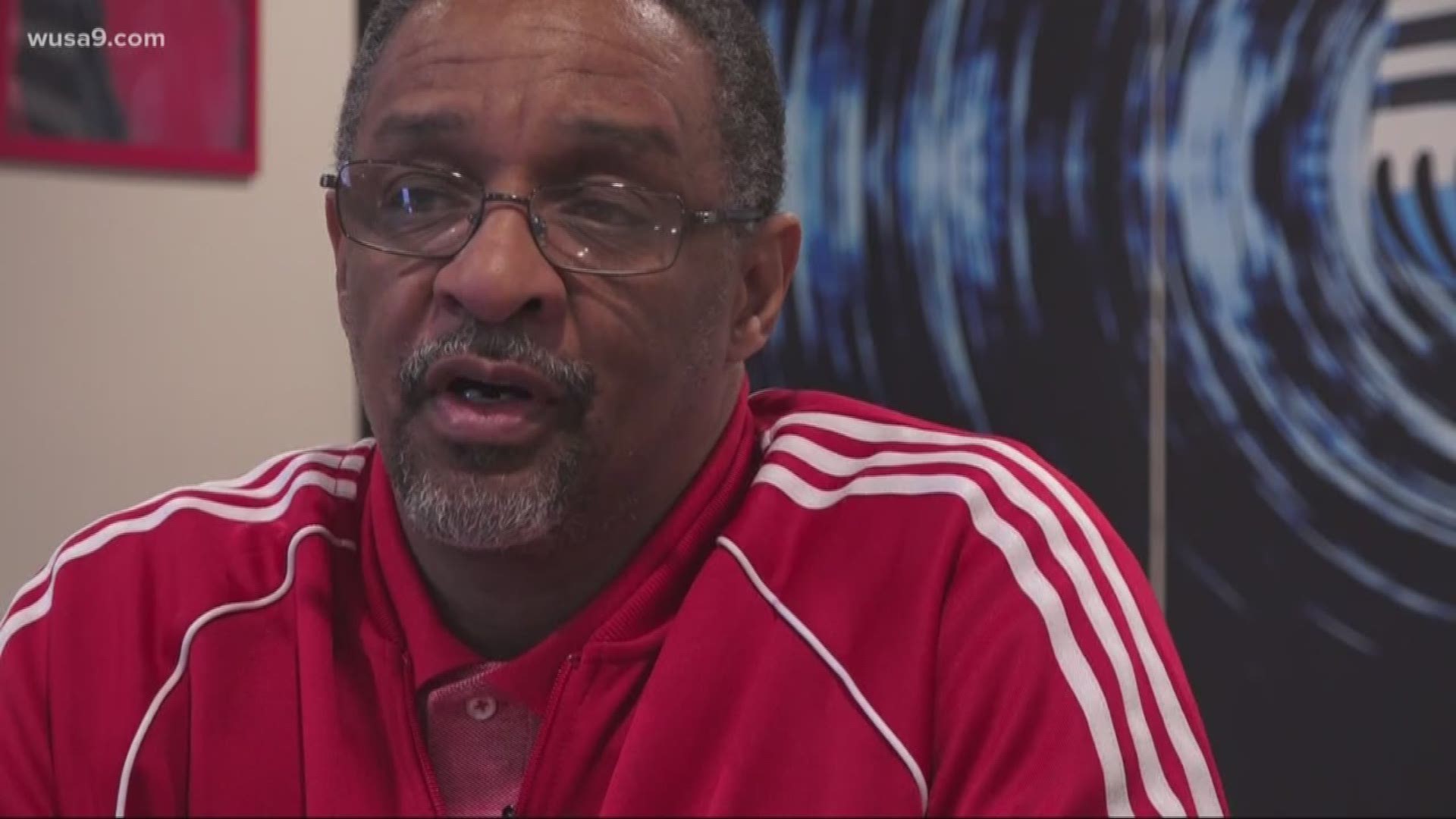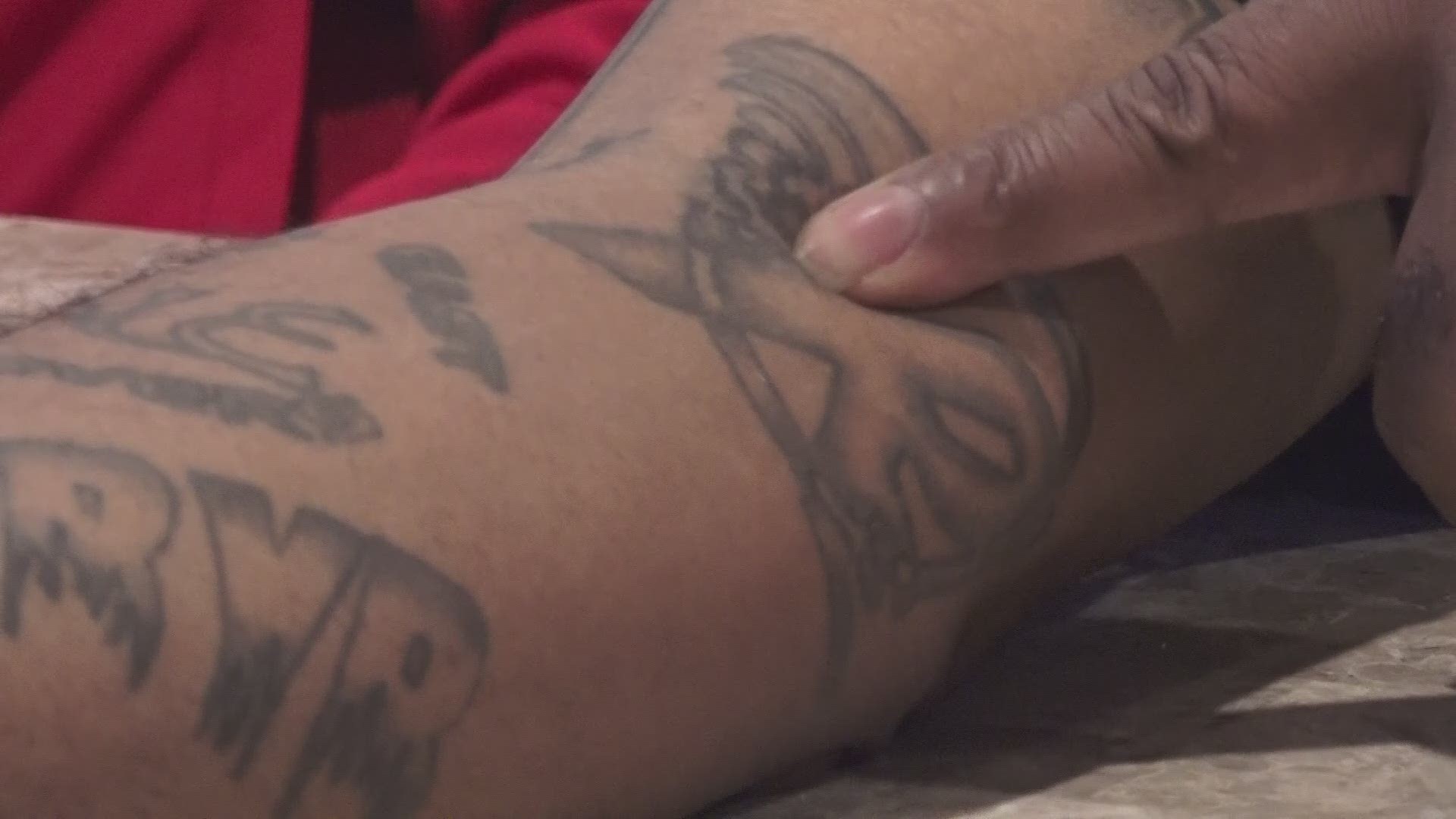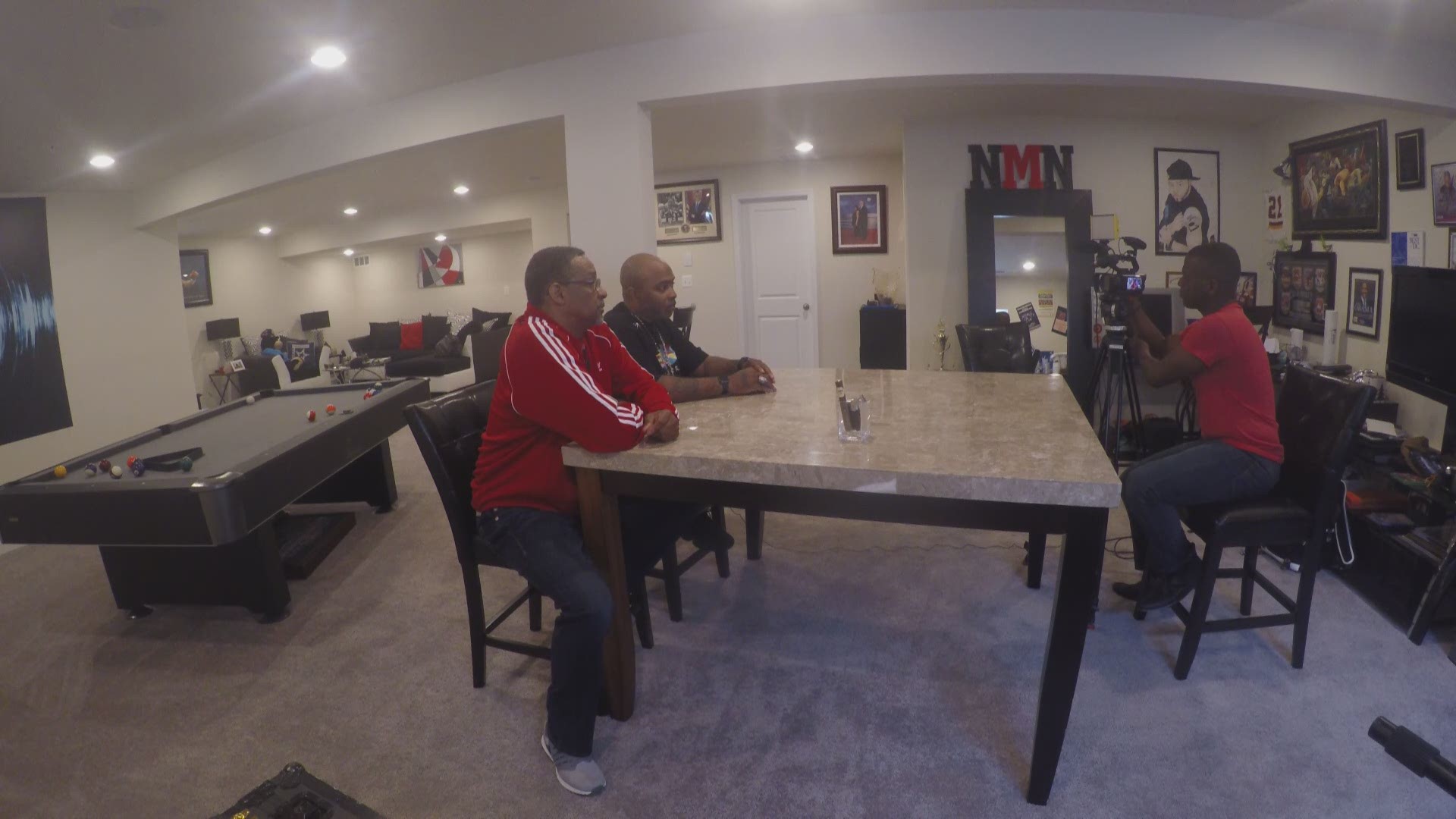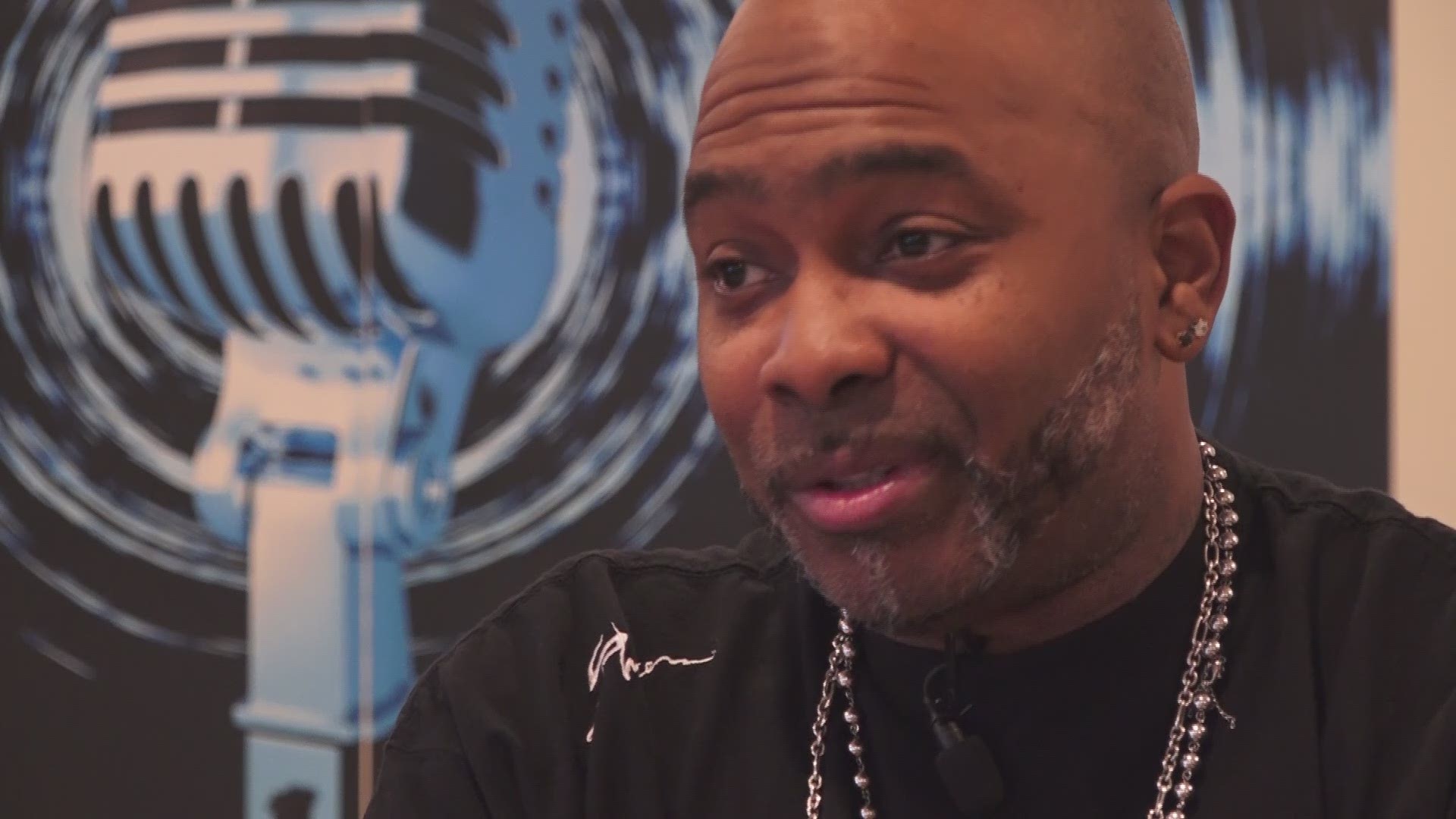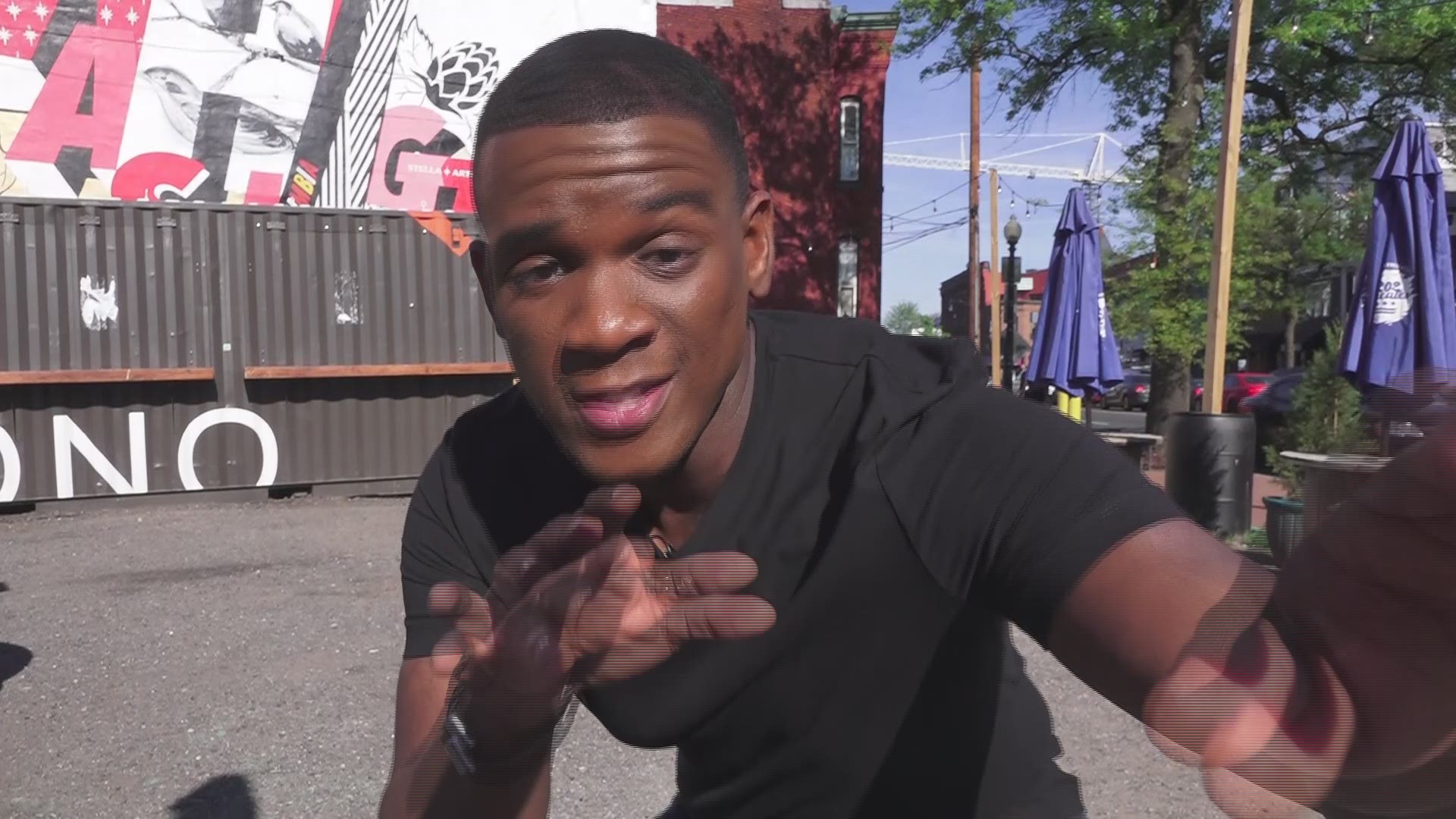WASHINGTON -- Go-Go music is the heartbeat of D.C. and can be described as the soundtrack to the lives of many native Washingtonians.
Many D.C. natives have been up in arms in recent weeks after some of D.C.’s transient population complained about go-go music playing from a longtime business located on Chuck Brown Way and Florida Avenue.
The frustration and passion were cataloged on social media under the hashtag ‘#DontMuteDC.’
A series of rallies and a petition aided in the music returning to the speakers of the Shaw neighborhood business, but it is important to understand why native Washingtonians were so passionate about the issue.
Andre “White Boy” Johnson and Ricardo “DJ Dirty Rico” Scott have deep-rooted connections to the city’s unique music culture and explained what go-go means to the local community.
Johnson, who is the band leader and guitar player for Rare Essence, has been linked to go-go music for more than 40 years.
“From when go-go really got started,” he explained. “Rare Essence started in 1976. So, from that point until now, I’ve been here.”
DJ Dirty Rico started in the go-go music scene as a roadie for Johnson’s band and evolved into a popular DC-area DJ.
“I’ve been DJing 30 years,” DJ Dirty Rico, who can be heard on Magic 102.3, said.
How did go-go music get its start?
Johnson credits the late Chuck Brown, who was known as the Godfather of Go-Go, as the pioneer of the local music genre.
“When he would do his performances, he would play this little break/intermission beat between each song,” Johnson recalled.
Brown used the percussion-led intermission beats to keep the audience members on their feet while the band transitioned to its next song.
“The intermission between the songs went from 30 seconds to two minutes, to five minutes, to 10 minutes,” Johnson told WUSA9. “Shortly, they became the more popular part of what go-go was to become.”
Go-Go music was once considered an underground music style based solely in DC, Maryland, and Virginia.
The tunes use instruments, such as drums, congas, timbales, rolling toms, shakers, and more.
“It’s a thing that you hear with the rhythm of that beat that just grabs you,” DJ Dirty Rico said.
How has go-go culture changed in DC since it first began?
Over the years, the music in DC’s go-go culture evolved as new bands popped up and experienced musicians experimented with new sounds.
“It’s just how rap came from regular rap to trap,” DJ Dirty Rico laughed.
Despite minor changes to the music artistry, both men said the culture surrounding go-go has remained consistent.
“Go-Go is the DMV’s lifeblood,” Johnson said. “It is in everybody.”
The District was once dubbed Chocolate City because of the high number of African-Americans who lived there, but the amount of black people how live in D.C. has dropped to less than half of the population.
A recent study by the National Community Reinvestment Coalition found D.C. had the most intense level of gentrification when compared to other cities across the country.
The NCRC reported more than 20,000 black people were displaced in a 13-year period.
“I’m thinking of all of the venues that we used to have that are no longer there,” Johnson told WUSA9.
Johnson said there were approximately 30 venues for go-go bands to circulate 25 years ago, but, now, there are a mere five locations for go-go musicians to play in the District.
“It somewhat stifles the music,” he said. “But for 40 years, go-go has found a way.”
DJ Dirty Rico and Johnson said go-go music and bands were often blamed for violence that occurred at live music venues or near where an event was being held.
Despite the challenges people in the go-go community said they have faced, Johnson said go-go music is still surviving and thriving.
DJ Dirty Rico said go-go music acts as a healing agent for many of the people who consume it.
He said, “the thing is that go-go is here to stay. Period. Period.”
--
If you know someone or a topic that should be featured in our ‘For the Culture’ segment, email Michael Quander at mquander@wusa9.com or send him a direct message on Twitter or Instagram.

